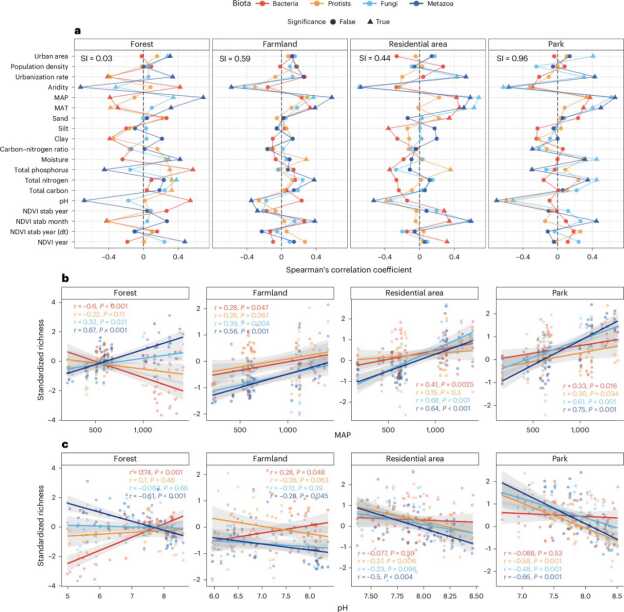

Soils in urban greenspaces often support higher microbial richness but with more homogenous communities than in natural ecosystems. However, it is not known how urbanization impacts the diversity and homogeneity of soil communities in urban greenspaces compared with other highly managed ecosystems such as farmlands. Here we conducted a continental-scale study spanning 13 cities and four land uses (city parks, residential areas, and adjacent forests and farmlands) in China. We found that urban ecosystems consistently support higher local soil bacterial, protist and fungal (but not metazoan) richness than farmlands and forests. This elevated richness was closely related to higher pH in urban ecosystem soils. Urban greenspaces also supported more homogenous soil communities than farmlands. The results indicate that urbanization drives biotic homogenization and increases synchronous responses to environmental stressors in urban greenspaces at a continental scale. Our findings have important implications for managing soil ecosystem resilience and functional diversity in cities of the future.
